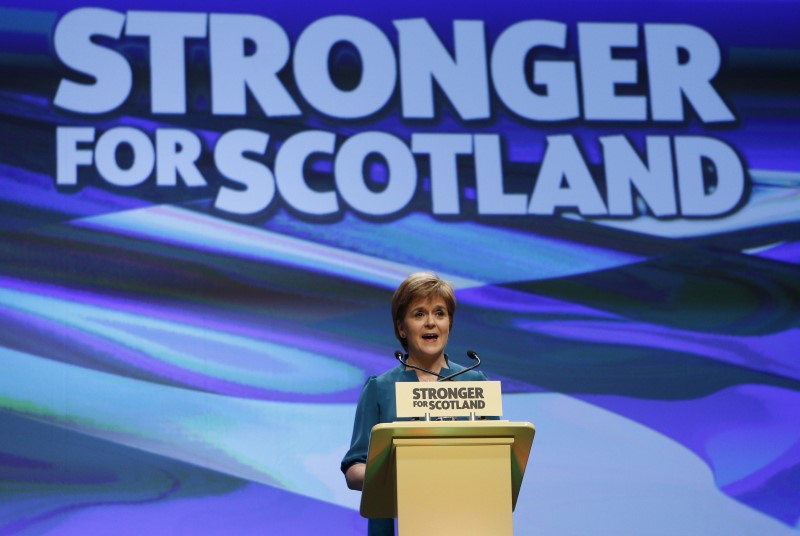By Elisabeth O'Leary
EDINBURGH (Reuters) - Scotland's leading academic sees Scottish independence from Britain as inevitable, but believes it will be a slow process and not even a vote in June for Britain to leave the European Union would trigger immediate moves to secede.
Scots voted 55-45 percent against independence in a referendum in 2014. But the Scottish National Party then took all but three of Scotland's 59 seats at the Westminster parliament in a British election the following year.
"There is no quick fix. (For independence to happen) it has to be a steady demonstration of convincing argument over time," said Tom Devine, a history professor at Edinburgh University.
"But I think the identity thing is so strong now that it probably just needs a final push," Devine, who himself backs independence, told Reuters in an interview.
The SNP, which polls say will win another five-year term in Edinburgh's devolved parliament after a May 5 election, has said it will offer another referendum if Scotland were to be pushed out of the EU "against its will" in Britain's nationwide poll on EU membership on June 23.
But Scotland's first minister, Nicola Sturgeon, has said the SNP would not press for a second independence referendum until it was clear most Scots wanted to leave the United Kingdom.
Devine, author of "Independence or Union" which charts the relationship between Scotland and England since their 1707 union, also said a British vote to leave would not lead quickly to secession.
But he saw another Scottish referendum likely in the next 10 years given the "allure" of independence.
"Scotland remains a restless nation," he said.
"Most Scots continue to believe in an important role for the state and so resent the downsizing and privatisation policies of Westminster, so inevitably independence will therefore retain an allure for some time as a potential escape from what many north of the border - though not yet a clear majority - see as a politically unacceptable ideology," he said.
British Prime Minister David Cameron is campaigning for Britain to stay in the EU and his chances of success may have been helped by a direct intervention of U.S. President Barack Obama backing Britain staying in.
Devine says the SNP, ironically, is now in a position to use unionism to reap political gains.

"No British prime minister wants Scotland to 'go' on their watch, and this is a fantastic bludgeon with which to beat Westminster. There is still a lot to be pushed for via more devolution," he said.